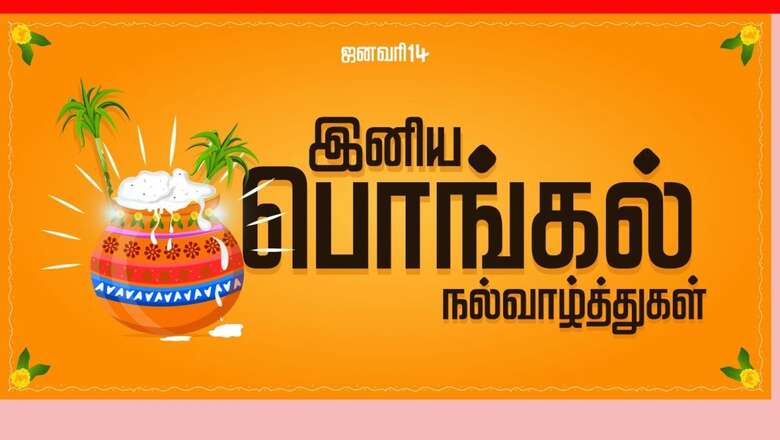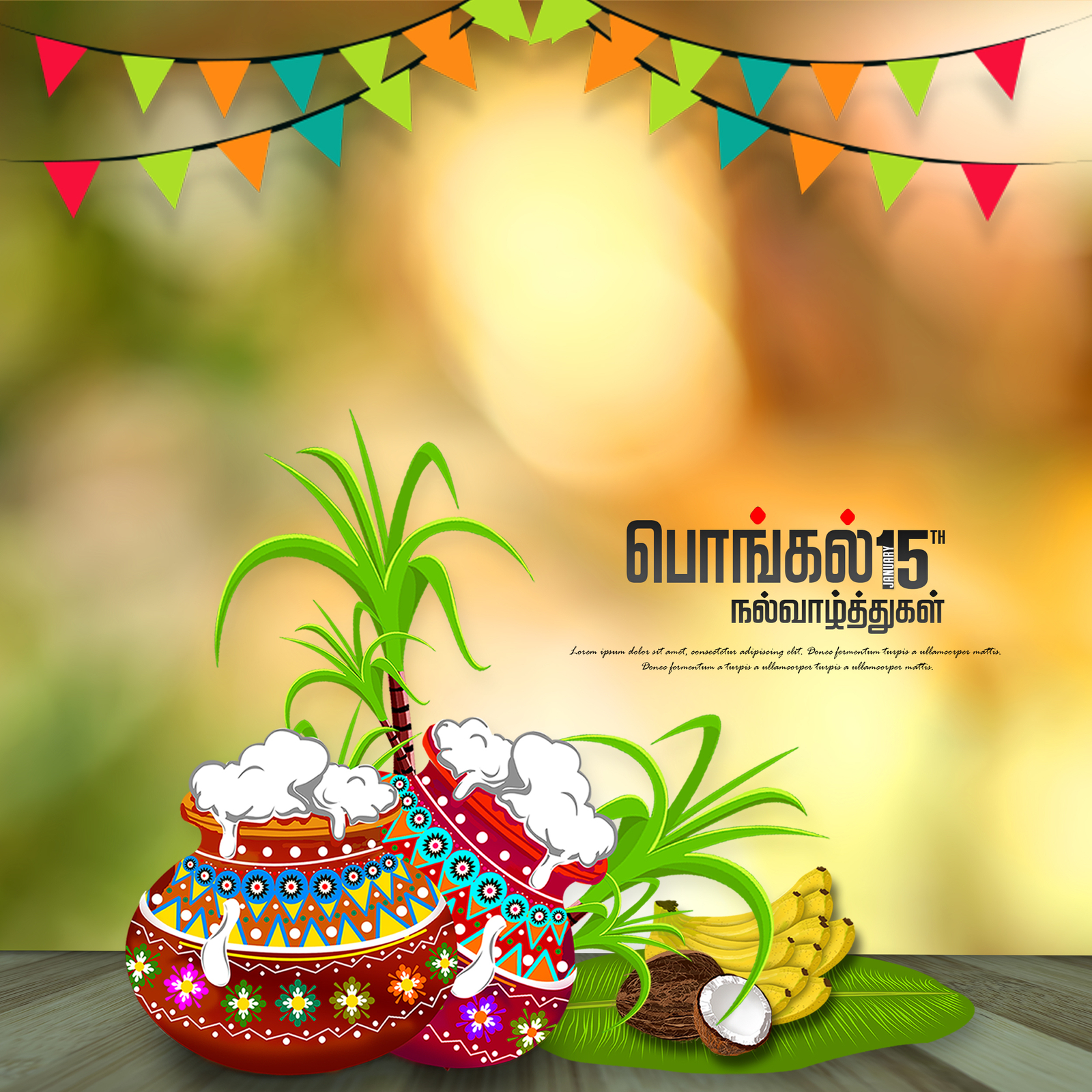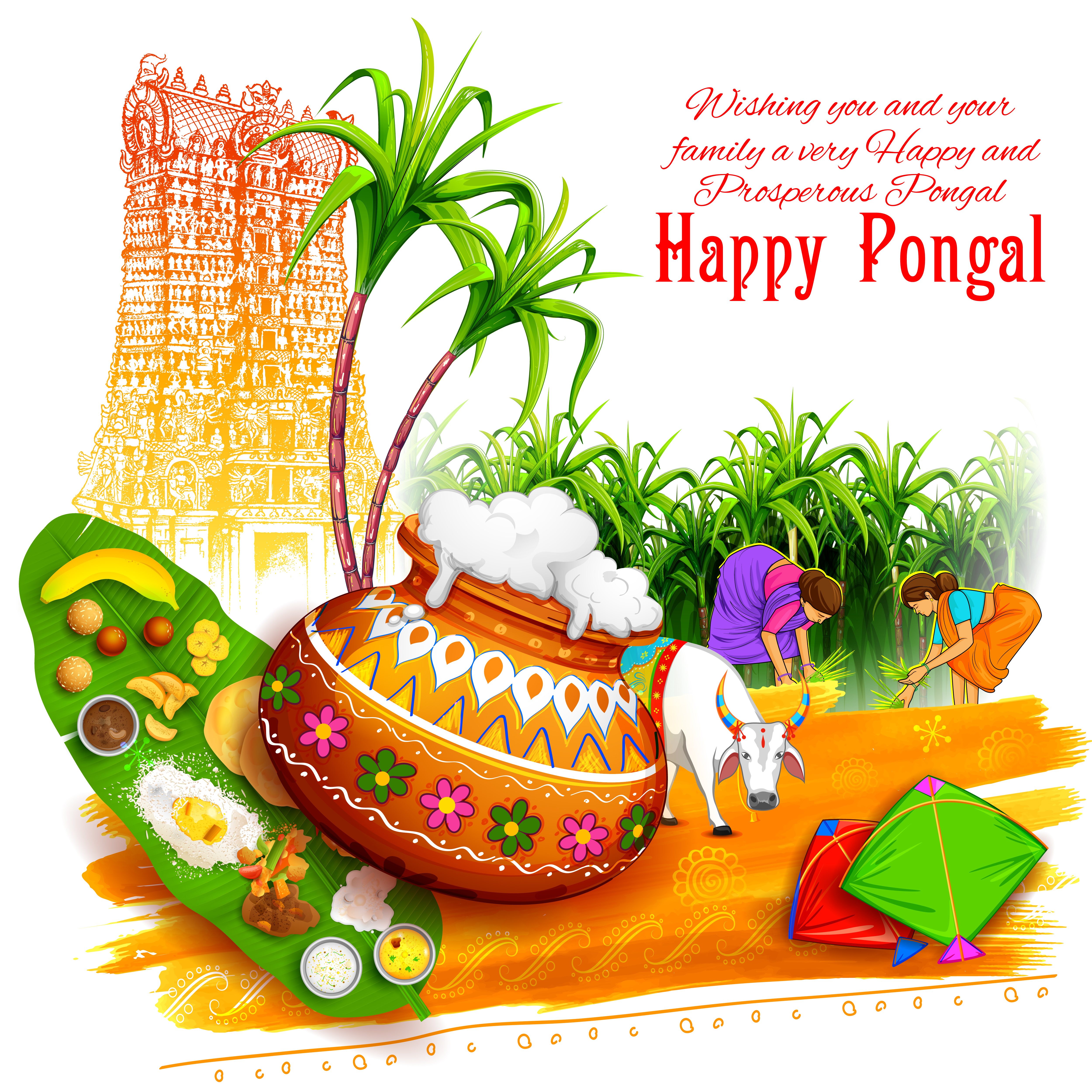
views
HAPPY THAI PONGAL 2023: Pongal is a harvest festival celebrated to thank the Sun, Mother Nature, and the cattle to help with a bountiful harvest. The four-day celebrations are marked in South India. It falls at the beginning of the Tamil month called Thai. This usually falls on either January 14 or 15 every year.
The celebration is incomplete without consuming a dish, also called Pongal that is prepared during the festivities. Derived from the Tamil word Pongu, which means “to boil over”, this dish is a mixture of boiled sweet rice. This year Pongal will fall on January 15 until January 18. Here is all you need to know about the festivities:

Celebrations
- The first day of Pongal is known as Bhogi. It is marked by cleaning and discarding old belongings. The significance is to mark a fresh start. People also decorate their homes and wear new clothes.
- The second day is when the celebrations actually commence. It is known as Surya Pongal in honour of the Sun God. Kolam is drawn at the entrance of every home. People cook a pot of fresh rice with milk according to the muhurat. A feast is also prepared.
- On the third day or Maatu Ponga, people worship the cattle and honor the hard work they do to plow the land. Cows are bathed and adorned with beads, garlands, and bells.
- The final day of Pongal is called Kaanum Pongal. This day is all about the community and strengthening ties. Families come together for a feast. They also participate in traditional Indian folk dances such as mayilattam and kolattam.
History
This festival can be traced back to the Sangam Age, which was around 200 B.C.E. to 300 A.D. It originated as a Dravidian Harvest festival that has also found mentioned in Sanskrit Puranas.

During the Sangam Era, it is believed people celebrated the festivals of Thai Un and Thai Niradal. Historians believe these have led to the celebrations of Pongal we know today. The festivals of the Sangam Era saw maidens observing Pavai Nonbu during the Thai Niradal. The maidens prayed for the rain and prosperity of the country.
The festival began in December or January. After taking a bath early in the morning, maidens were to worship the idol of Goddess Katyayni which was carved out of wet sand. They were to avoid milk and milk products, not oil their hair, and abstain from using harsh words when speaking. Their penance would end on the first day of the month of Thai which fell during January or February.
According to an inscription found in the Veeraraghava temple at Tiruvallur, the Chola King Kiluttunga gifted lands to the temple, especially for the Pongal celebrations.
Legends
There are two legends associated with the four-day festivities of Pongal:
1. The first legend is associated with Lord Indra and Lord Krishna. People used to worship Lord Indra as the King of all deities. It is believed that this had turned him prideful and arrogant. Lord Krishna persuaded his cowherd friends to worship Mount Govardhan instead to break his pride.
The angered Lord Indra made it thunder and rain non-stop. The heavy rains brought about a flood. That was when Lord Krishna lifted the Govardhan Parvat on his little finger to protect the people and their cattle. The rains continued for three days.
Only then did Lord Indra realize his mistake and the divine power of Lord Krishna. He sought Lord Krishna’s forgiveness, who allowed the Bhogi celebrations to continue in honour of Lord Indra. Thus, the day gave the origin to the Pongal celebration.
2. The other legend states that the third day of Pongal known as Mattu Pongal revolved around Lord Shiva and his mount, Nandi, the bull. Lord Shiva once asked Nandi to go to the Earth and deliver his message to the people. They were to have an oil massage and bath daily and eat food once a month.
Nandi mistakenly announced to have an oil massage and bath once a month and eat daily. This enraged Lord Shiva. He cursed Nandi that there would be a lack of grains on the Earth due to this mistake.
Furthermore, he banished the bull to live on earth forever, helping people plow the fields. This is why Mattu Pongal is associated with cattle.
Read all the Latest Lifestyle News here




















Comments
0 comment